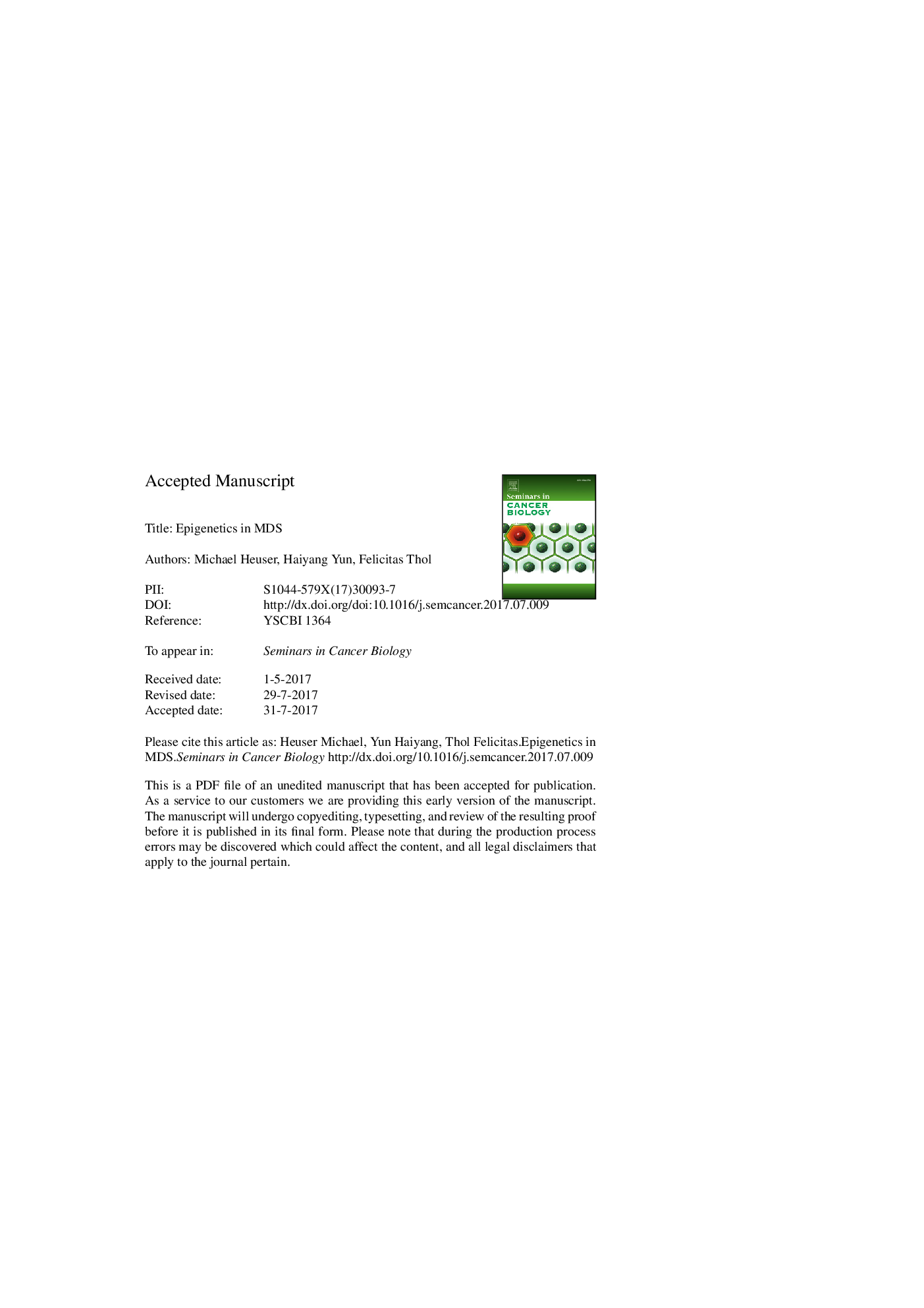| Article ID | Journal | Published Year | Pages | File Type |
|---|---|---|---|---|
| 8361750 | Seminars in Cancer Biology | 2018 | 30 Pages |
Abstract
Epigenetic regulators are the largest group of genes mutated in MDS patients. Most mutated genes belong to one of three groups of genes with normal functions in DNA methylation, in H3K27 methylation/acetylation or in H3K4 methylation. Mutations in the majority of epigenetic regulators disrupt their normal function and induce a loss-of-function phenotype. The transcriptional consequences are often failure to repress differentiation programs and upregulation of self-renewal pathways. However, the mechanisms how different epigenetic regulators result in similar transcriptional consequences are not well understood. Hypomethylating agents are active in higher risk MDS patients, but their efficacy does not correlate with mutations in epigenetic regulators and the median duration of hematologic response is limited to 10-13 months. Inhibitors of histone deacetylases (HDAC) yielded disappointing results so far, questioning this approach in MDS patients. We review the clinical relevance of epigenetic mutations in MDS, discuss their functional consequences and highlight the role of epigenetic therapies in this difficult to treat disease.
Keywords
Related Topics
Life Sciences
Biochemistry, Genetics and Molecular Biology
Biochemistry
Authors
Michael Heuser, Haiyang Yun, Felicitas Thol,
